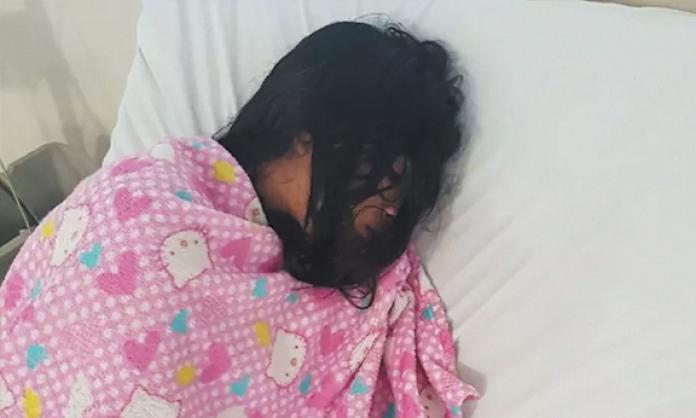Children on Nauru are exhibiting signs of resignation syndrome, a rare mental disorder born from extreme trauma.
The physiological basis of the illness is unclear. What is known is that traumatised children, including those caught in the horror of immigration limbo or who live without hope, are at greatest risk of developing the condition.
Similar cases of otherwise healthy people becoming mute and still have been noted during other historical atrocities, such as among detainees who knew there was no escape from Nazi concentration camps.
In the early 2000s, hundreds of refugee children presented to a Swedish hospital with similar symptoms. According to Doctors of the World, adolescent refugees would “assume a coma-like state, lying prone, with their eyes closed, disconnected from the world around them. They are fed via feeding tubes”.
Some sufferers regressed slowly, ceasing to speak, then eat, then, eventually, move. In other cases, the onset was instantaneous – a young refugee would revert to bed and never wake. Many remained unresponsive for years, dissociated and withdrawn.
It is almost impossible to determine exactly how many children might be suffering this condition in Australia’s gulags. The government is keeping the conditions on Manus and Nauru secret and whistleblowing was criminalised with the passage of the Espionage Bill in July.
Reports suggest multiple instances of resignation syndrome. In late July, a girl, her age and background unknown, was brought to Australia from Nauru for urgent medical care, showing symptoms of the disorder after serious self-harm. Another child, a 12-year-old Iranian refugee on Nauru, is exhibiting signs of resignation syndrome. Some argue he is on hunger strike, while others insist he has developed the condition.
Offshore detention is designed to inflict suffering to deter others – caught in terrifying environments, warzones or facing persecution – from trying to reach Australia. Grotesquely, the government uses the suffering of children as an example to other desperate people.
The result is children attempting suicide and, when they fail, becoming comatose with despair.
In the words of Peter Dutton, these horrors are a “hard won success … that could be undone overnight by a single act of compassion in bringing 20 people from Manus to Australia”.
In a 2016 article for Frontiers of Neurological Science, Swedish medical students involved in the care of refugee children wrote:
“Apart from life-sustaining tube feeding, treatment [for RS] amounts to promoting and maintaining a secure and hopeful environment, encouraging a sense of coherence. Several authors stress the importance of a permanent residency permit.”
To stop the suffering, every refugee should be brought to Australia immediately, not to languish in another detention centre, but to be free.




